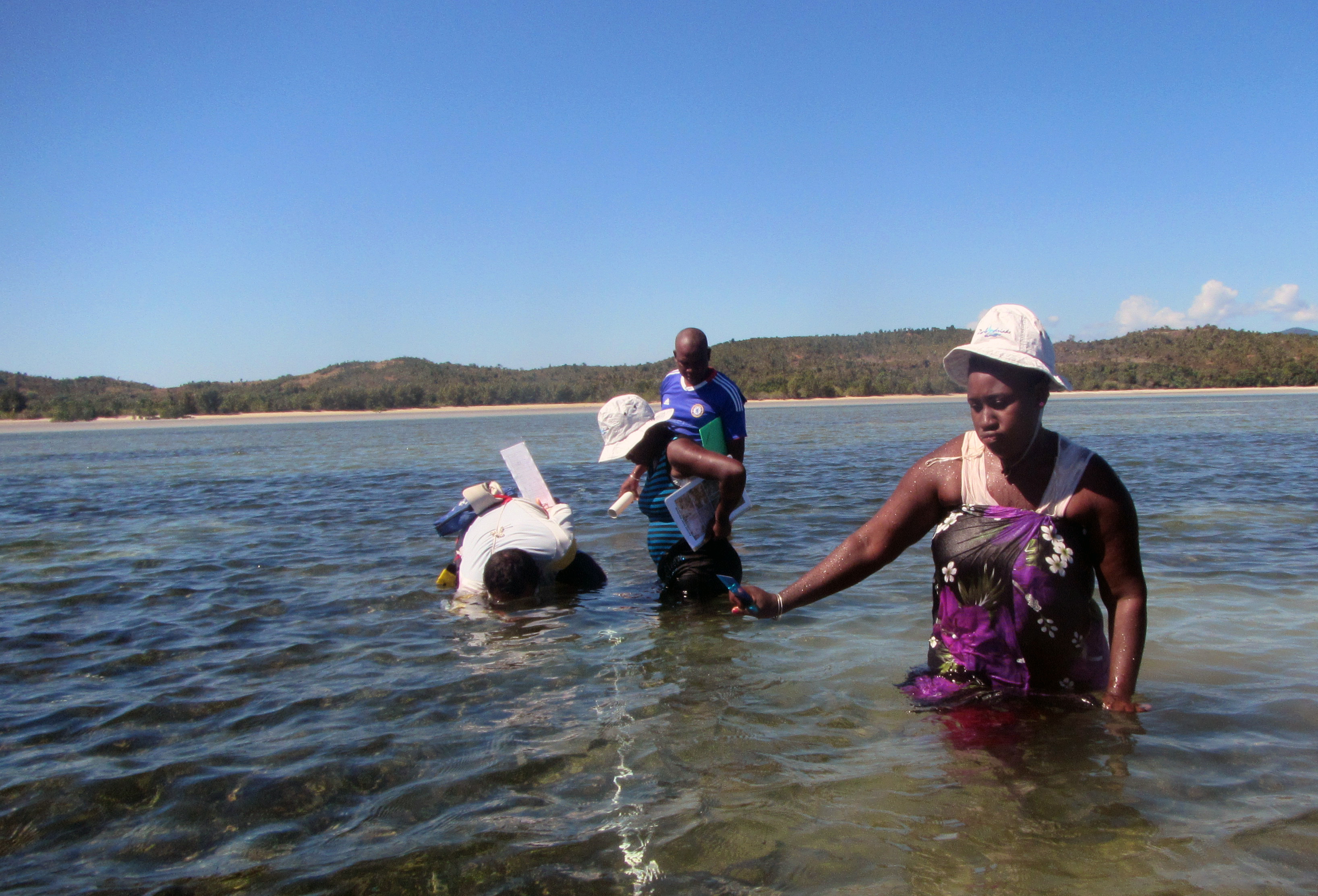Fabiola Anjarafidy lives in a small village called Ampohagna, one of the villages of the Ankivonjy Protected Area. This village is located in the Rural Commune of West-Bemaneviky, in the District of Ambanja in the DIANA Region. To help her husband support their family, she works as a farmer but is also a fisherwoman.
Fabiola is an active member of the Association of Women in Ampohagna. She is very involved in the Ankivonjy Association - co-manager of the Protected Area with WCS, for which she serves as Deputy Treasurer.
Fabiola decided to get involved in nature conservation when she noticed the destruction of the environment in the area following the arrival of migrant fishermen and charcoal burners near her village. She committed herself to do her part in conservation after noticing that the fish products are decreasing day by day. Fabiola is a dynamic and motivated person, she does several activities related to biodiversity conservation. Apart from being Deputy Treasurer, she is also a monitoring agent of seagrass beds and a monitoring agent of catch per unit effort in Ankivonjy.
Come on, women! Let's conserve nature to protect our heritage!
Catch-per-unit-effort (CPUE) monitoring is important to objectively evaluate the effects of conservation measures and to take a more integrated approach to fisheries management plans. Of similar importance to CPUE monitoring, seagrass monitoring allows to assess the health of the resources and to adjust management measures and fishing practices at the area level according to the results. Seagrass beds play crucial roles in stabilizing sediment, which is beneficial to the development of coral reefs by avoiding hyper-sedimentation; with their rhizomes, seagrass beds protect the coastline from erosion and waves; moreover, they constitute a nursery and feeding area for various species of juvenile, adult, transient or resident marine animals.

Photo Credit :
© WCS Madagascar
Fabiola's life has changed since her involvement in conservation projects with WCS. With our support, she has been able to improve farming techniques and practices, such as rice and vegetable farming. With the work she does, she is now able to help her husband with their children's schooling.
Thanks to her involvement in the development and monitoring of marine resources, she not only earns money but has acquired a lot of knowledge that allows her to conserve the biodiversity in Ankivonjy.